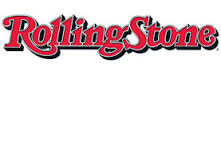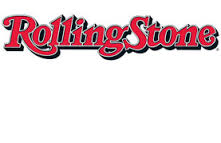
The founder of Rolling Stone is selling 49 percent of the iconic magazine to an Asian billionaire’s son after a five-decade run full of interviews with pop stars and presidents. In a deal that encapsulates the plight of an industry fighting to stay relevant in an online age, it’s the first time Jann Wenner has admitted an outside investor. Us Weekly and Men’s Journal. Is owned by Wenner Media LLC.
Helping launch the careers of writers and creative artists over almost 50 years, Rolling Stone became a fixture of American pop culture after being founded in 1967. The magazine has steadily lost advertising and readership to nimbler online alternatives like many of its peers. Wenner tasked his son Gus with devising a digital strategy in 2014. Now Wenner plans to relinquish as much of his magazine as possible without ceding control having started Rolling Stone from a San Francisco warehouse.
“It’s a big moment. There is a great opportunity to take that brand and apply it into new and different areas and markets,’’ Gus Wenner, the company’s head of digital, said.
Founded by the 28-year-old scion of one of Asia’s richest families, Singapore-based Bandlab Technologies, a budding digital music concern is the new investor. Last year BandLab was launched as a social network for musicians and fans by Kuok Meng Ru, the third son of Singapore-based agribusiness tycoon Kuok Khoon Hong. He had graduated from Cambridge University with a mathematics degree. Including Kuok’s father and JamHub Corp., a maker of audio mixers, the startup is funded by private investors.
“Our growth in digital has been fantastic, but long term, my dad and myself recognize that in order to truly grow and truly transform the business -- and we have this incredible brand in Rolling Stone that means so much,” they needed a partner in Asia, Wenner said.
There would be no involvement of BandLab in the editorial side of the magazine. A new Rolling Stone International subsidiary, which will develop live events, merchandising and hospitality would be overseen by the new investor.
Two sides have been in discussions for about 15 months, Kuok said. “What has happened last 49 years has already shown that Rolling Stone is more than a brand to people. It is now our shared responsibility to take it into the future,” Kuok said.
According to the company, Rolling Stone currently reaches a global audience of 65 million people. This includes nearly 12 million readers of the U.S. print publication, almost 18 million social fans and followers and 22 million domestic digital monthly users. In the first half of this year from a year earlier, the average monthly unique visitors to its website rose almost 40 percent. It publishes 12 international editions in countries including Australia, Indonesia and Japan.
“Our strategic partnership is focused on brand extensions into new areas we haven’t quite fully been in the past, such as merchandising, live events, hospitality – they are areas we have dabbled in but never really seriously gone after. Meng and his team bring a great deal of understanding, infrastructure, know-how and act in that extraordinarily exciting market of Asia and beyond,” said Wenner.
(Source:www.bloomberg.com)
Helping launch the careers of writers and creative artists over almost 50 years, Rolling Stone became a fixture of American pop culture after being founded in 1967. The magazine has steadily lost advertising and readership to nimbler online alternatives like many of its peers. Wenner tasked his son Gus with devising a digital strategy in 2014. Now Wenner plans to relinquish as much of his magazine as possible without ceding control having started Rolling Stone from a San Francisco warehouse.
“It’s a big moment. There is a great opportunity to take that brand and apply it into new and different areas and markets,’’ Gus Wenner, the company’s head of digital, said.
Founded by the 28-year-old scion of one of Asia’s richest families, Singapore-based Bandlab Technologies, a budding digital music concern is the new investor. Last year BandLab was launched as a social network for musicians and fans by Kuok Meng Ru, the third son of Singapore-based agribusiness tycoon Kuok Khoon Hong. He had graduated from Cambridge University with a mathematics degree. Including Kuok’s father and JamHub Corp., a maker of audio mixers, the startup is funded by private investors.
“Our growth in digital has been fantastic, but long term, my dad and myself recognize that in order to truly grow and truly transform the business -- and we have this incredible brand in Rolling Stone that means so much,” they needed a partner in Asia, Wenner said.
There would be no involvement of BandLab in the editorial side of the magazine. A new Rolling Stone International subsidiary, which will develop live events, merchandising and hospitality would be overseen by the new investor.
Two sides have been in discussions for about 15 months, Kuok said. “What has happened last 49 years has already shown that Rolling Stone is more than a brand to people. It is now our shared responsibility to take it into the future,” Kuok said.
According to the company, Rolling Stone currently reaches a global audience of 65 million people. This includes nearly 12 million readers of the U.S. print publication, almost 18 million social fans and followers and 22 million domestic digital monthly users. In the first half of this year from a year earlier, the average monthly unique visitors to its website rose almost 40 percent. It publishes 12 international editions in countries including Australia, Indonesia and Japan.
“Our strategic partnership is focused on brand extensions into new areas we haven’t quite fully been in the past, such as merchandising, live events, hospitality – they are areas we have dabbled in but never really seriously gone after. Meng and his team bring a great deal of understanding, infrastructure, know-how and act in that extraordinarily exciting market of Asia and beyond,” said Wenner.
(Source:www.bloomberg.com)














